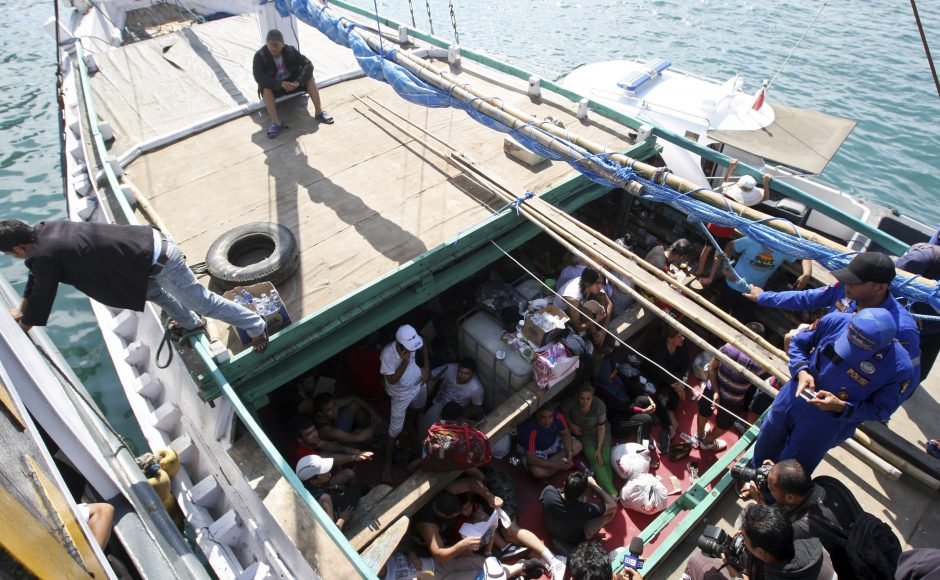-
Tips for becoming a good boxer - November 6, 2020
-
7 expert tips for making your hens night a memorable one - November 6, 2020
-
5 reasons to host your Christmas party on a cruise boat - November 6, 2020
-
What to do when you’re charged with a crime - November 6, 2020
-
Should you get one or multiple dogs? Here’s all you need to know - November 3, 2020
-
A Guide: How to Build Your Very Own Magic Mirror - February 14, 2019
-
Our Top Inspirational Baseball Stars - November 24, 2018
-
Five Tech Tools That Will Help You Turn Your Blog into a Business - November 24, 2018
-
How to Indulge on Vacation without Expanding Your Waist - November 9, 2018
-
5 Strategies for Businesses to Appeal to Today’s Increasingly Mobile-Crazed Customers - November 9, 2018
Australians accepting of refugees
That’s according to the results of a new survey by Amnesty International that sought to determine just how close ordinary people would be willing to get to the refugee crisis – asking if they would be willing to take refugees into their country, city, neighborhood, or home.
Advertisement
The survey was commissioned by the London-based Amnesty amid a refugee crisis that past year saw more than 1 million people flee Syria, Afghanistan, Iraq, and other countries for Europe.
Kate Allen, Director of Amnesty International UK, said the findings showed the UK was “overwhelmingly supportive of refugees” and that the government was “out of step with reality”.
In Germany, a country that received 1.1 million asylum seekers in 2015, nearly every respondent (96 per cent) said they would accept refugees in their country, while only 3 per cent said refugees should be refused entry.
The UK came third after China and Germany in Amnesty International’s ranking of how accepting countries are of refugees, which shows anti-refugee rhetoric and policies are wildly “out of step” with public opinion, the charity says.
In many cases the response of people appears at odds with their country’s political culture, such as in Australia, which is the fifth most welcoming country on Amnesty’s index.
Globally, one person in 10 would take refugees into their home, according to the survey.
To be sure, it’s easy for respondents to say they’d welcome refugees.
The organisation is calling on all countries, including the Australian Government, to use next week’s World Humanitarian Summit to move from short-term and often abusive measures to deter refugees and agree to long-term, proactive and globally coordinated solutions. Usually people who are passionate about the topic in one direction or the other are more likely to answer questions than those who are relatively neutral.
Governments at the World Humanitarian Summit must also address the $15 billion shortfall in humanitarian funding highlighted by the United Nations at the start of 2016, putting forward more money to support both refugees and the countries hosting large numbers of refugees.
“People are ready to make refugees welcome”, he said, but governments’ inhumane response to the refugee crisis is “badly out of touch with the views of their own citizens”.
It also suggests that the most negative attitudes towards refugees are in Russia, Indonesia and Thailand.
The first-ever World Humanitarian Summit is being held in Istanbul next week as the number of people who have been forced from their homes globally hits record levels.
In Jordan, a country that already hosts 650,000 Syrian refugees, 84 per cent of people believe their government should do more to assist refugees fleeing war or persecution.
Millions of people are displaced around the world each year by conflict and disaster.
Advertisement
“Governments’ efforts to keep out people fleeing war and persecution fly in the face of the humanity and solidarity shown by their own citizens, not to mention their obligations under worldwide law”. The same number said their government needs to do more to help refugees. “They must address the shameful imbalance that sees 86% of the world’s refugees welcomed by the world’s poorer countries while the wealthy ones renege on their responsibilities”. Responses were scaled to 100 as follows: 0 = “I would refuse them entry to my country”; 33 = “I would accept them in my country”; 67 = “In my city/town/village”; and 100 = “In my neighbourhood or household”.





























